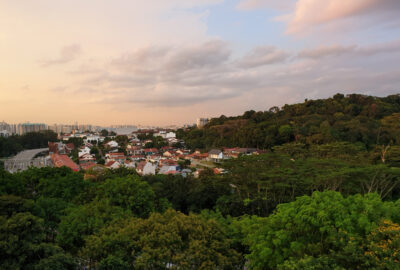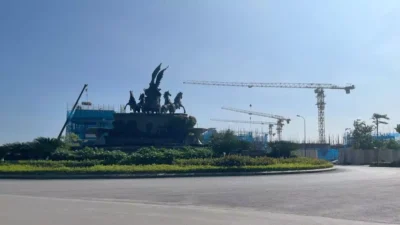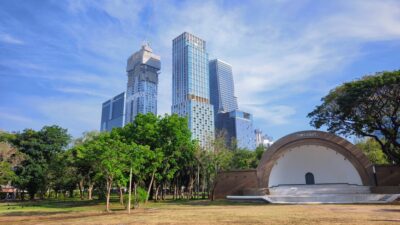Tax tinkering sparks fury in Hong Kong
Rebates favouring landlords angering those clamouring for more transformative policy change to the property market

Hong Kong’s housing, new residents are quick to learn, is something of a paradox: the city’s thicket of towering skyscrapers belying the suffocating spaces where most of its residents retire at night.
Government officials routinely highlight the severe shortfall of affordable housing—the result of ever-rising demand, limited land supply, powerful property developers—as “a top priority” for reform. So many were perplexed by news last April, that new regulations would gift Hong Kong’s largest landholders a wash of new tax returns.
Hong Kong properties are subject to a five percent indirect tax on their rateable value, or estimated annual rent fee. But owners rarely pay the full rate. In recent years the government has offered one-off rates rebates as a relief measure to ease the burden on property owners. For the 2018-2019 budget, the city’s Financial Services and the Treasury Bureau raised maximum quarterly tax concessions from HKD1,000 to HKD2,500 (USD127 to USD318).
The hike may not seem so significant, though small businesses and families will likely appreciate a small bonus. The real jackpot is for developers: the waiver applies not per property owner but property owned, meaning the city’s real estate super-gentry could be in for a major windfall.
More: Why China is dithering on a national property tax
Hong Kong’s 10 largest landlords control a combined 40,000 units, making them eligible for some HKD256 million (USD32.8 million) under the new tax breaks. The top owner alone would collect HKD102.6 million (USD13 million). That’s a bit more than pocket-change.
The proposed rate change was received with predictable public chagrin. The rebate is expected to cost the government HKD17.8 billion (USD2.3 billion), which critics argue would be better spent on healthcare, education, and social services than lining landlords’ pockets.
But the policy itself is nothing new. Hong Kong has offered a tax concession to property owners since 2007-08. The initial ceiling was HKD5,000 per quarter—double the 2018-19 rate.
A property tax rebate is “quite a favourite with the financial sector,” if the government “had a good year, [and] wants to give something away to reward the community,” says Nicholas Brooke, chairman of real estate consultancy Professional Property Services Group Limited. And Hong Kong had quite the year: the government ran a record HKD138 billion (USD17.7 billion) budget surplus in 2017-18.
Their arguments favouring a tax rebate to help dole out this excess are also logistical, says Richard Cullen, visiting professor of law at the University of Hong Kong. A property tax concession is “very simple to operate,” Cullen says. “The cost of implementation and making the payments are very low” because the government has already identified property rate payers. “It’s pretty bulletproof.”
Other giveaways risk getting mired in red tape. A planned HKD4,000 (USD510) cash handout for non-property owners has drawn heat for its onerous application process. Similar welfare schemes “generate the need for a huge amount of paperwork and organization,” Cullen says, whereas a property tax rebate is “almost the push of a button.”
A ‘skilled worker’ now faces 22 years of penny-pinching to afford a flat in the city, the latest UBS global housing survey estimates; in 2008, that wait was 12 years
But the new waiver has reignited complaints that Hong Kong is more interested in bestowing its largesse on the very wealthiest rather than reinvesting in social services. One lawmaker slammed it as “returning the wealth to the wealthy.”
For the rest, the picture is less rosy. Hong Kong was ranked the world’s least affordable city for housing for the ninth consecutive year in 2018 by urban planning consultancy Demographia. A “skilled worker” now faces 22 years of penny-pinching to afford a flat in the city, the latest UBS global housing survey estimates; in 2008, that wait was 12 years.
Chief Executive Carrie Lam called the housing crisis “the most important, most complicated, and most serious problem” facing the city. As a result of stratospheric prices, an estimated 3.3 million people—44.7 percent of the population—live in subsidized public housing. Another 268,500 are on a five-year waiting list.
Hongkongers’ objections to the tax waiver initially seemed successful. The government scaled back the rebate in December to apply just once per owner. But Lam reversed course again in January, saying it would stand as initially proposed, because large property owners were found to be passing savings on to tenants. “What may appear unfair on the surface may not be so in reality,” she claimed.
More: The rise of Hong Kong’s nano homes
Brooke agrees it was “logical” for savings to be transferred to tenants for rented apartments, because the property tax is an occupational charge rather than an ownership charge. “Most responsible landlords will pass it on, but obviously there’s no obligation,” he points out.
Even if refunds do trickle down into tenants’ pockets, “they won’t help much,” argues Jay Li Ting-Fung, chief campaigner for the Hong Kong Association for Democracy and People’s Livelihood, a grassroots political organization. Instead, Li is calling for more comprehensive reforms to “structural problems” in the property market, from building more public housing to passing rent subsidies for residents in “indecent” conditions.
But reinstating rent controls, which Hong Kong abandoned in 1998, would be an arduous fight. The government’s 2014 Long-Term Housing Strategy judged tenancy controls “counter-productive,” backing more construction as the “fundamental solution” to the city’s housing woes. Lam warned in March that rent controls and subsidies “would only benefit property owners, not the tenants.”
The government has numerous options to create more housing supply, experts say, from developing rural “brownfield” sites to a 10-year, HKD500 billion (USD63 billion) land reclamation project that would create some 400,000 new flats, 70 percent of them in new public housing projects. But many proposals have met with backlash from environmental activists as well as budget hawks, who predict ballooning long-term costs.
More: Chinese détente means more funds in the Philippines
A punitive vacancy tax could push developers to relinquish an estimated 9,000 completed but unsold properties, that critics charge are being hoarded until market conditions improve.
In the interim, experts and industry watchers expressed frustration with the government’s preference for incremental tax tinkering over transformative policy changes.
“We’re looking for leadership and we’re looking for some major decisions by the administration,” Brooke says. “The ball is very firmly in their court.”
This article originally appeared in Issue No. 153 of PropertyGuru Property Report Magazine
Recommended
Meet the expert helping overseas investors crack Australia’s property market
Ivan Lam of property advisors Charter Keck Cramer helps clients navigate Australia’s complex real estate dynamics
6 spots to check out in Singapore’s Bukit list neighbourhood
The sought-after Singapore neighbourhood offers lifestyle amenities, green space, and new residential projects
Thailand’s real estate sector watches closely as the Shinawatras return to power
Time will tell if the return to power in Thailand of the Shinawatras will lift the country’s ailing real estate sector
China’s homebuying surge: Can new stimulus measures keep the market rally alive?
Stimulus measures have sparked a surge in homebuying activity around China, but many are sceptical the shift will endure








